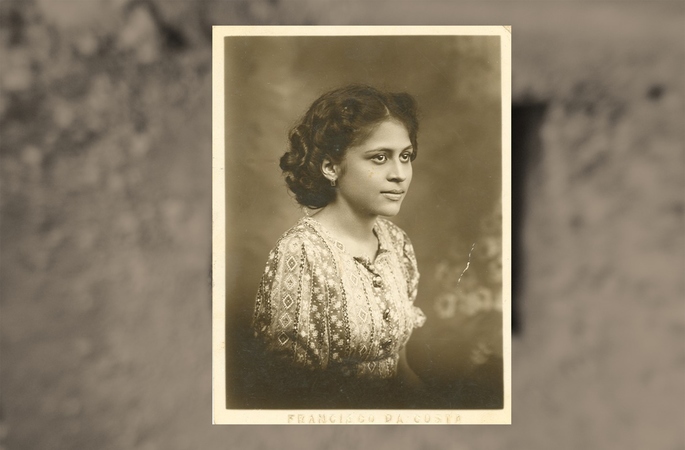The First Woman Graduate In My Family
In the grand narratives of empowerment, the micro struggles often fall by the way, remaining undocumented and unacknowledged. Feminism, with its assertion of the personal as political, makes room for understanding and honouring these little journeys of individual and collective resistance to the flows of power that mark the lives of women across time and space. If I reach back into the history of my own family, an upper middle class, Goan Catholic family, I can find several women who have inspired me, who have negotiated with patriarchy in their own ways, creating rooms of their own and broadening the scope of resistance for subsequent generations. My mother, Sofia Cordeiro Monteiro, is one of them.
Sofia was the first woman graduate in her family, at a time when education for girls beyond a certain level was not common. Born in 1919, she lived in Goa (then a colony of Portugal), where there were no facilities for University education. She was a brilliant student, finishing her SSC with distinction in 1937. She was awarded the Dalgado Portuguese scholarship, which entitled her to completely free education in any college in Bombay. However, her paternal grandmother did not want her to leave Goa. It was unheard of for girls to leave home for higher education in those days. She writes in her memoirs:
I was now confronted with a big problem. My grandmother refused to permit me to study in a college in Bombay. Fortunately, my uncle Jose, my father’s brother, who lived in Bombay with his wife and three children, came to my rescue and said that I could stay with them. My grandmother accepted this arrangement with great reluctance. I left home for Bombay with tears in my eyes. I felt very lonely and missed the warmth of my parents and siblings. I cried for two days and finally told my uncle that I wanted to return to my parents. He shouted at me. Finally, I decided to stay on. I joined St. Xavier’s College, where I was awarded another scholarship of Rs. 90 (it was a princely sum then) for having the second-highest marks among all first-year students who joined the college.
Sofia finished her inter-arts exam with distinction in Mathematics and French. She wanted to take Mathematics as her main subject for her BA, but her uncle did not permit her, and so she chose French. She turned down several marriage proposals while she was studying and graduated with a very high first-class in 1941. Whilst she was a student, she fell in love with a fellow college mate. Due to family opposition, she could not marry him for many years. She went back to Goa, did her B.Ed and became a schoolteacher. She finally married him in 1945. She was widowed at 30, remarried her husband’s brother (my father) a few years later and had a total of 5 children.
My earliest memories of my parents are of my father’s warm motherly embrace and my mother’s great love for reading. In many ways, they defied gender stereotypes.
Inocencio, my father, was the more gentle, artistic and soft-spoken one, who rarely if ever scolded us. Sofia was more assertive, intellectually inclined and mercurial. Very different from each other, their lives entwined and created a beautiful space where all who entered felt loved, unconditionally accepted and understood.
This unconditional acceptance is very rare, bound as most of us tend to be in our iron chest of norms, beliefs and prejudices. The imagination and the generosity of spirit to accept difference, to be non-judgmental while at the same time holding on to one’s beliefs and values are truly exceptional, and this is the most important lesson that I imbibed from my parents. It is perhaps what encouraged the five of us children to think and act in ways that defied societal norms and to forge our own paths.
My mother was a dedicated and popular teacher of Maths, French and English all her working life. She taught in schools across the country for over 30 years, accompanying my father, who was an officer in the Indian army, on his transfers. She retired in the late 1970s, as the Principal of a teacher training college in Goa. A powerful, socially engaged and gutsy woman, she imparted to all her children a love of Maths, a passion for reading, a sense of social commitment and a zest for life.
Sofia was a great raconteur and would relish telling the same stories over and over again! I have fond memories of her spending all morning on the verandah of our home in Goa, in her old age, deeply immersed in reading the newspaper from cover to cover, and then moving on to a book, oblivious to all around her. After my father’s death in 2004, to pick herself out of feelings of loneliness and depression, she wrote her memoirs, just for her family. It is a marvellous, unsentimental and refreshingly honest description of her life and times. The book was released just four days before she passed away of cancer in February 2007. At the time of her death, she was reading three books simultaneously — one of them was Chicken Soup for the Teenage Soul!



